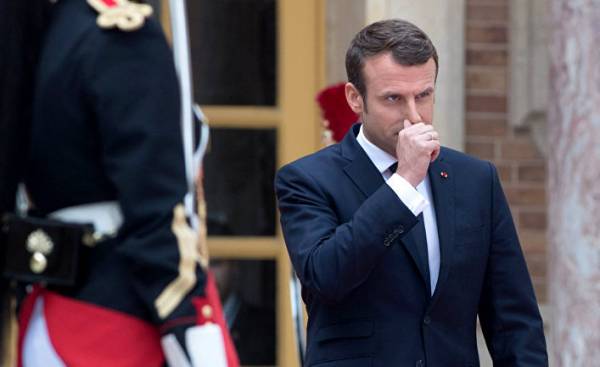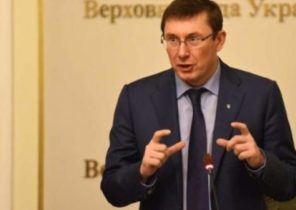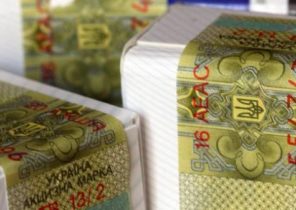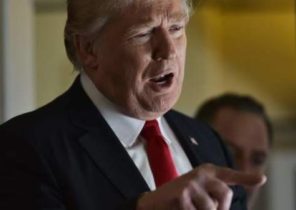
No, the Paris voters are not “sickening” as of Monday pathetically exclaimed Henri Geno, lost his place in the National Assembly. It is impossible to explain the people’s refusal to go to the polls (which, as we’ve been told for over 30 years, beneficial to the National front) a surge in popularity of a new political party of French President Emmanuel Macron “Go Republic!”. And no, not the macron began his career as a dictator at the age of 39, as Charles de Gaulle did not start it in your 67.
In short, almost nothing is said about French politics in the last days does not explain the apparent crushing victory that followed the first round of parliamentary elections on Sunday. The rapid flow of news after last Sunday has become just a ringing in the ears of those who for many years prefer to hear nothing.
So what in reality is happening? How macron, a political newcomer, who seemed destined to lead to a thousand and one shaky coalition, has achieved unprecedented results: spent about 400 deputies in the 577-member National Assembly under the banner of the party that just a few months ago was, in fact, a party of one man?
First, of course, in virtuosity. It is a quality, wrote Hannah Arendt in her comments to “Nicomachus ethics” of Aristotle, is common to actors and politicians. Second, it showed the complete incompetence of populist (marine Le Pen on the right, Jean-Luc Mélenchon on the left), which, as it turned out, completely exhausted policy under the slogan “France first”.
However, the main success factor of the Macron, I believe, is that structural change, which I described ten years ago in the book “In dark times”. This change has now reached its climax.
It all started with the French revolution. Or to be more precise, it all started with the French invention of the concept of “revolution” that quickly won a place on the top of our political thinking, like a guiding star, all other stars are lined up around it. Those who are sympathetic to the revolutionary prospects, concentrated on the left flank, and on the right — gathered those who saw in the revolution a constant threat and struggled with it.
But then, in a short time period between the Chinese revolution of 1949 and the Cambodian nightmare 1975-1979 years, the discovery was made: the more radical the revolution is, the more bloody and barbaric it becomes. Revolution, as it became clear, was not just difficult or elusive or impossible, she was frankly disgusting. Guiding light began to darken and turned into a black hole that swallowed it’s own light and the light of the stars smaller. At some point, the whole political system had to explode.
We have now reached this point. No, the boundaries between left and right are blurred in France for the first time. In varying degrees this has happened in valm, during the Dreyfus affair, during the period of the Vichy government and on the question of colonialism.
But it was in the distant Cambodian war 40 years ago, revolutionary ideas and dreams had been shattered and neutralized. It was a protracted shock, a slow explosion with an accompanying blast effect, the systematic cancellation of political boundaries, differences and, in the end, definitions that were “French exceptionalism” and that the triumph of Macron put an end to.
Immediately there is a thousand questions: How will behave those who came to power under the banner of the Makron? If they are intoxicated by the victory, from which direction, when and from whose hands they will receive the necessary sobering slap in the face? How, when and where there will be balances that are absolutely necessary for the normal functioning of democracy?
There are other issues. Where is the West? By what compass, what horizon? The expression “at the same time” — creating a balance between conflicting facts and ideas — has become a cementing force dictionary Macron. But how long will last this “storefront” as a policy?
If we really are at the end of a historic era, which began in 1789, would we return in the age of Enlightenment? Or in the period before the Enlightenment, when new ideas arose of natural law and related to the Republican ideals? If we rewrite the “Leviathan” or that the principle is the same, peace of Westphalia, this time freed from the necessity to again pass through the tragic radicalization of Europe and the outbreak of the world wars?
Whatever was preparing the future, the main fact is clear: the Makron saw that his predecessors were barely noticed. He became the instrument or the result of a long-term event that is gaining momentum before our eyes.
The Makron will now have to deal with the construction on the destroyed box and ensure that the end of a certain way of forming policy would not mean the end of politics in General. At Macron, as well as those who have elected him and those who voted against him or, worse, did not go to the polls a responsibility to do the best that one can do in dark times: to dream, to invent, to do art “beginnings,” which, as Arendt believed, are the beating heart of public action.







